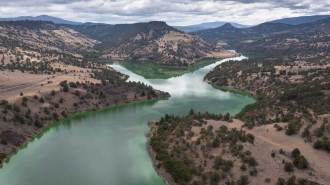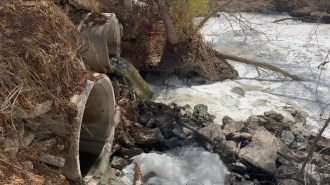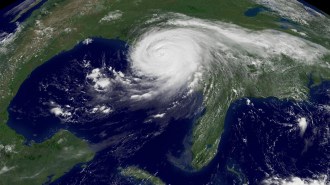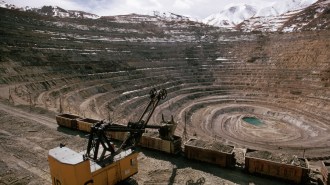Peace and quiet is becoming more elusive in U.S. wild areas
Human-made cacophony doubles volume of background noise in many places, study finds
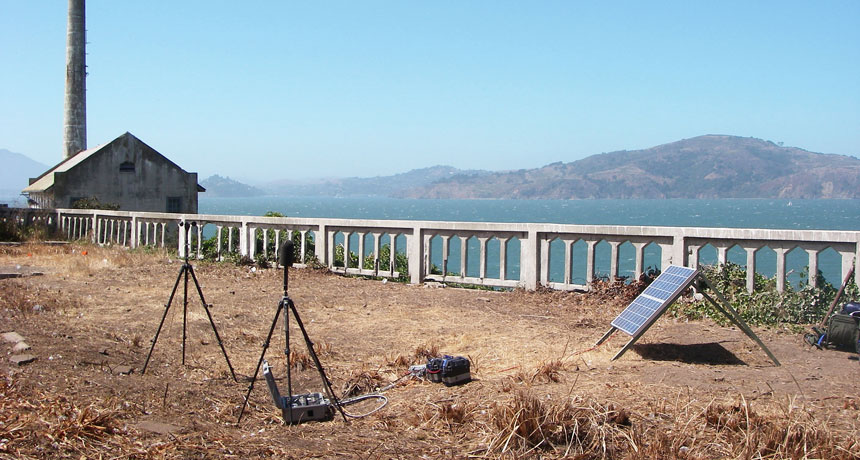
NOISE POLLUTION Alcatraz Island is a former prison now managed by the federal government as a protected natural area and historical site. Long-term audio recordings taken in places like this one are helping scientists understand just how much human noise affects natural places.
U.S. National Park Service
Even in the wilderness, humans are making a ruckus.
In 63 percent of America’s protected places — including parks, monuments and designated wilderness areas — sounds made by human activity are doubling the volume of background noise. And in 21 percent of protected places, this racket can make things 10 times noisier.
Enough clatter from cars, planes and suburban sprawl is seeping into wild places to diminish animals’ ability to hear mating calls and approaching predators, a team of researchers based in Colorado reports in the May 5 Science. Human noise doesn’t always have to be loud to override natural sounds, though. Some places are so quiet to begin with that even the smallest amount of human noise can dominate, the researchers found.
“The world is changing, and protected areas are getting louder — the last strongholds of diversity,” says Jesse Barber, an ecologist at Boise State University in Idaho. Studies like this one that show the impact of human-related noise across the entire country instead of in a single park are important, he says, because “this is the scale at which conservation occurs.”
Researchers measured the reach of human noise by tapping into a National Park Service dataset containing long-term audio recordings from 492 sites across the United States. At each site, the scientists linked the sound volume in decibels (averaged over weeks of recording and adjusted to prioritize the frequencies that human ears are most sensitive to) to the presence or absence of dozens of possible features. Such factors include whether the terrain was mountainous or flat, if there was a river nearby, and how close the site was to a highway or a farm.
Machine learning algorithms then predicted the volume in areas without audio monitors, based on the features of that place — and figured out how much of the noise in any given location came from human sources compared with natural ones.
Rural racket
Noise made by humans increases the natural sound level, even in parks and wilderness areas across the United States — and sometimes by quite a lot. Noise exceedance of 1.25, 3.01, 6.02, and 10 decibels correspond to 25, 50, 75, and 90 percent reductions in the area over which an acoustic signal like a birdcall can be detected by humans.
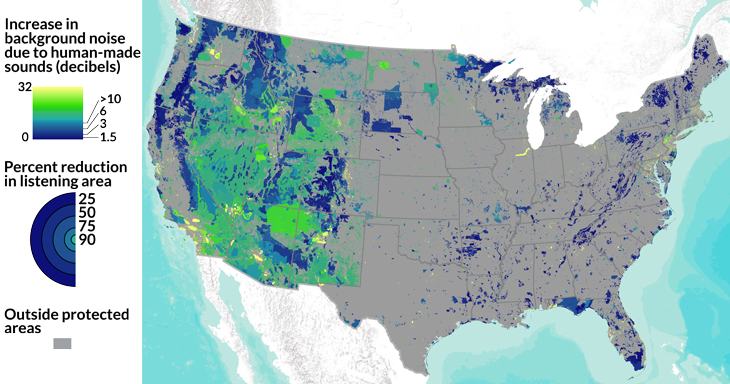
The answer: quite a lot, even in the wilderness. In 12 percent of designated wilderness areas, for instance, human-made noises increase the median sound level 3 decibels above the predicted natural levels of noise. That means the area over which a bird’s squawk would register in human ears would be cut in half in those places.
The more stringent the protections on the land, the lower the noise pollution, says study coauthor Rachel Buxton, an ecologist at Colorado State University in Fort Collins. For example, some categories of land protection allow mining and timber harvesting in limited amounts, which can boost noise levels. Areas labeled as wilderness ban such activity almost entirely, though do permit livestock grazing. Overall, protected areas were 35 percent less noisy than nearby spots that weren’t protected in any way.
Land managed by the federal government also tended to be less impacted by human noise than land under local control. That might come as a surprise to anyone who’s faced a traffic jam trying to find a parking spot in Yosemite or Shenandoah national parks on a summer weekend. But unlike other U.S. land management agencies, the National Park Service “considers natural sounds to be a natural resource,” Buxton says.
Bird versus car
A pine siskin, a small bird in the finch family, sings as a car passes by in Colorado’s Rocky Mountain National Park.
Many national parks have instituted restrictions on airplanes flying overhead, for instance, and implemented public transit to decrease park traffic. So while the area around the visitor center might feel like an amusement park, chirping birds and gurgling streams can dominate the soundscape deeper in the park. This study suggests those noise control efforts might be making a difference.
Still, even a little extra noise can take a toll on the surrounding ecosystem. A humming highway can drown out birds’ mating calls or prevent predators from hearing rustling prey (SN: 2/21/15, p. 22). And species don’t need ears to be affected — the effects of excess noise “can really trickle through a community,” Buxton says. Plants often depend on birds to spread their seeds, or on bees to get pollinated. If noise changes those animals’ behavior, then the plants can face consequences, too.
“Noise is not strictly an urban phenomenon,” says Clint Francis, an ecologist at California Polytechnic State University in San Luis Obispo. There’s hope for wild areas, though. “Solutions to noise are often readily available,” he says. Quieter car engines and different types of road surfaces can all help reduce traffic noise, for example.
Quieter wild places can benefit humans, too. “When you’re in a park and you’re appreciating some sight, like the Grand Canyon, you also experience the sound of the river going by, the sound of the birds in the trees,” Buxton says. “It totally enhances your experience.”


